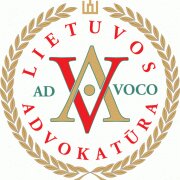Best Private Client Lawyers in Republic of Lithuania
Share your needs with us, get contacted by law firms.
Free. Takes 2 min.
Or refine your search by selecting a city:
List of the best lawyers in Republic of Lithuania
About Private Client Law in Republic of Lithuania
Private client law in the Republic of Lithuania encompasses a range of legal services tailored to individual needs rather than businesses. These often involve matters of personal wealth, property, family, succession, tax planning, asset management, and estate administration. The legal framework is designed to protect individuals' interests and provide guidance on managing and transferring assets both in life and after death. Lithuanian private client law is rooted in the Lithuanian Civil Code and supplemented by various local statutes and European Union regulations.
Why You May Need a Lawyer
There are several common scenarios where individuals in Lithuania may require the expertise of a private client lawyer:
- Drafting or updating a will to ensure assets are distributed as intended
- Managing or contesting inheritance matters
- Establishing trusts or other structures for asset protection and estate planning
- Addressing family matters such as divorce, child custody, or adoption
- Advising on tax-efficient strategies for individuals, including expatriates
- Administering the estate of a deceased relative, including probate procedures
- Transferring property or assets between family members
- Appointing legal representatives, such as power of attorney, in case of incapacity
- Managing wealth and investments in compliance with Lithuanian law
Seeking legal advice ensures your rights are protected and helps avoid costly mistakes or lengthy disputes.
Local Laws Overview
Lithuanian private client law is primarily based on the Civil Code of the Republic of Lithuania, which governs inheritance, family law, property law, and personal legal relationships. Key points relevant to private clients include:
- Inheritance Law: Lithuanian law recognizes both testate (by will) and intestate (without a will) succession. Specific rules dictate which family members inherit by default, and who may be excluded or have limited shares.
- Will Requirements: Wills must follow precise formality rules and can be handwritten, notarially certified, or secret. Lithuanian law allows for individual or joint wills with various limitations.
- Property Regimes: Spouses may choose between joint or separate property regimes. In the absence of an agreement, the default is joint ownership of assets acquired during marriage.
- Gift and Donation Laws: Donations above a certain value often require notarization and registration.
- Taxes: There are inheritance and gift taxes, though close relatives may benefit from exemptions or lower rates. Real estate transfers may also involve notarial fees and taxes.
- Guardianship and Power of Attorney: Lithuanian law allows for appointing someone to act on your behalf in the event of incapacity. Legal procedures must be followed for these appointments to be valid.
- Family Law: Divorce, maintenance, and child custody matters are subject to specific procedures and considerations of children's best interests.
Frequently Asked Questions
What happens if I die without a will in Lithuania?
If you die without a will, your estate is distributed according to intestate succession laws. Generally, spouses, children, and other close relatives inherit in a specific order. If no relatives can be found, property may eventually pass to the state.
Can foreigners own property or draft a will in Lithuania?
Yes, foreigners have the right to own property in Lithuania (with minor exceptions) and may draft a will in accordance with Lithuanian law, particularly if the property is located in the country.
Is a handwritten will valid in Lithuania?
Handwritten wills are recognized if they meet the form required by law, including specification of date and signature. However, notarized wills are generally more difficult to contest.
How is inheritance tax calculated?
Inheritance tax rates in Lithuania depend on the relationship between the deceased and the heir, as well as the inheritance value. Close family members may benefit from exemptions or reduced rates.
Can I exclude a family member from my will?
Only within specific limits. Certain relatives, such as children or spouses, have a right to a compulsory share and cannot be completely disinherited unless certain legal grounds exist.
What is the role of a notary in inheritance and property matters?
Notaries certify wills, oversee inheritance proceedings, prepare property transfer agreements, and register property transactions. Their involvement is required in most significant private client transactions.
How long does probate take in Lithuania?
Probate typically takes around 3 to 6 months if there are no disputes, but complex cases or contested estates may take longer.
How can I protect my assets during divorce proceedings?
You can enter into a prenuptial or postnuptial agreement. Otherwise, Lithuanian law provides for the division of joint assets, but individual agreements on asset sharing are possible and enforceable.
What options exist for incapacity planning?
You may appoint a power of attorney or guardian to manage your affairs if you become unable to do so. This must be finalized in the required legal form to be valid.
Are gifts between family members taxed in Lithuania?
Gifts between close family members are generally exempt from tax, but larger gifts to non-relatives may be subject to taxation. Notarial certification may be required for valuable assets.
Additional Resources
Several organizations and bodies can help with private client matters in Lithuania:
- Chamber of Notaries of the Republic of Lithuania: Oversees notarial services and provides information on inheritance and property transactions.
- State Tax Inspectorate (VMI): Offers guidance on inheritance and gift taxation as well as other personal tax matters.
- Lithuanian Bar Association: Maintains a directory of licensed lawyers and legal guidance for individuals needing legal representation.
- Civil Registry Offices: Handles official matters such as marriage, divorce, and registration of births and deaths.
You may also consider consulting legal aid services or specialized private client law firms for detailed advice.
Next Steps
If you need legal assistance in private client matters in Lithuania, consider the following steps:
- Define your needs - identify the situation you need help with, whether inheritance, family matters, asset management, or tax planning
- Gather any relevant documents, such as wills, property titles, or family records
- Contact a qualified private client lawyer, notary, or relevant authority for a consultation
- Ask about fees, timelines, and required documentation during your initial meeting
- Follow legal advice closely to avoid errors or disputes
Engaging a legal professional early can make a significant difference in protecting your interests and ensuring compliance with Lithuanian law.
Lawzana helps you find the best lawyers and law firms in Republic of Lithuania through a curated and pre-screened list of qualified legal professionals. Our platform offers rankings and detailed profiles of attorneys and law firms, allowing you to compare based on practice areas, including Private Client, experience, and client feedback.
Each profile includes a description of the firm's areas of practice, client reviews, team members and partners, year of establishment, spoken languages, office locations, contact information, social media presence, and any published articles or resources. Most firms on our platform speak English and are experienced in both local and international legal matters.
Get a quote from top-rated law firms in Republic of Lithuania — quickly, securely, and without unnecessary hassle.
Disclaimer:
The information provided on this page is for general informational purposes only and does not constitute legal advice. While we strive to ensure the accuracy and relevance of the content, legal information may change over time, and interpretations of the law can vary. You should always consult with a qualified legal professional for advice specific to your situation.
We disclaim all liability for actions taken or not taken based on the content of this page. If you believe any information is incorrect or outdated, please contact us, and we will review and update it where appropriate.
Browse private client law firms by service in Republic of Lithuania
Republic of Lithuania Attorneys in related practice areas.
Browse private client law firms by city in Republic of Lithuania
Refine your search by selecting a city.















